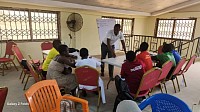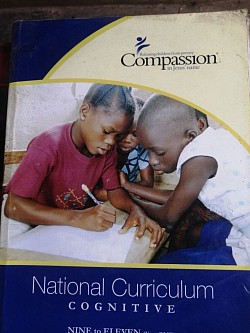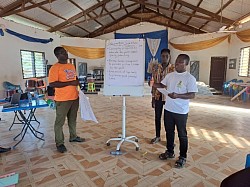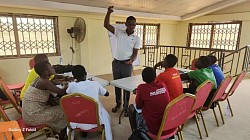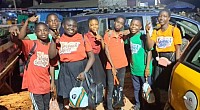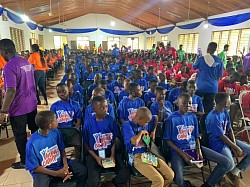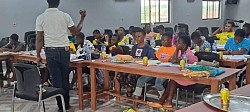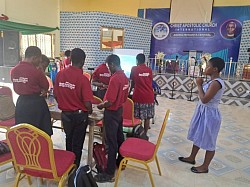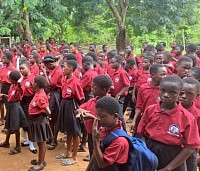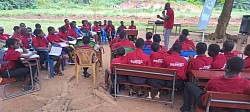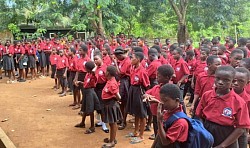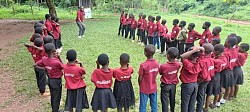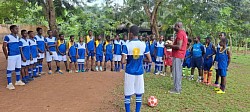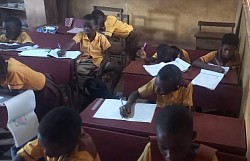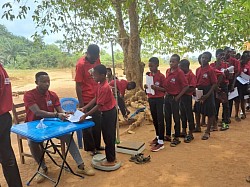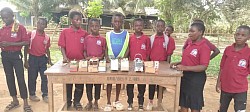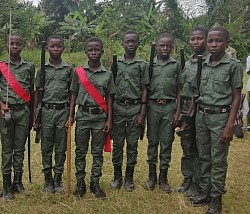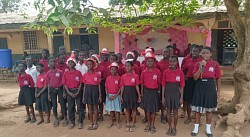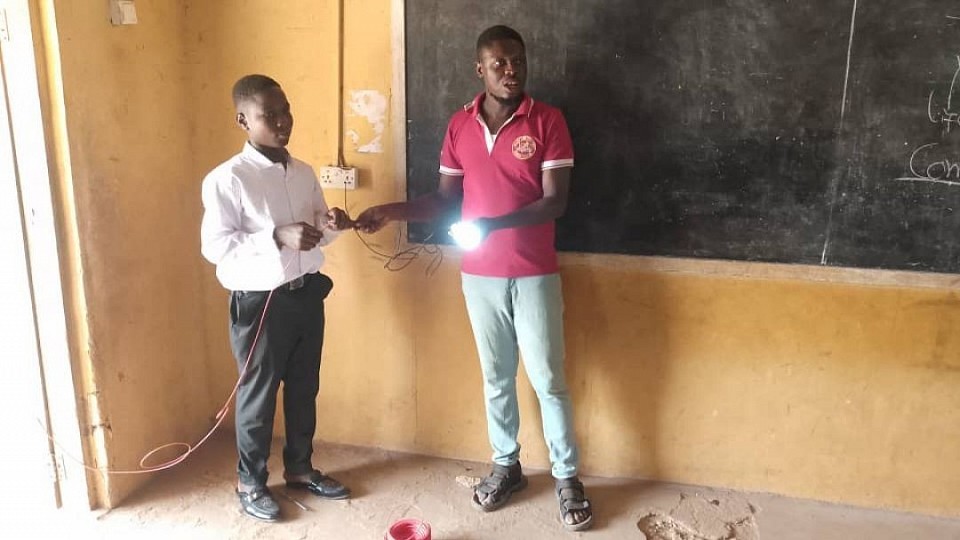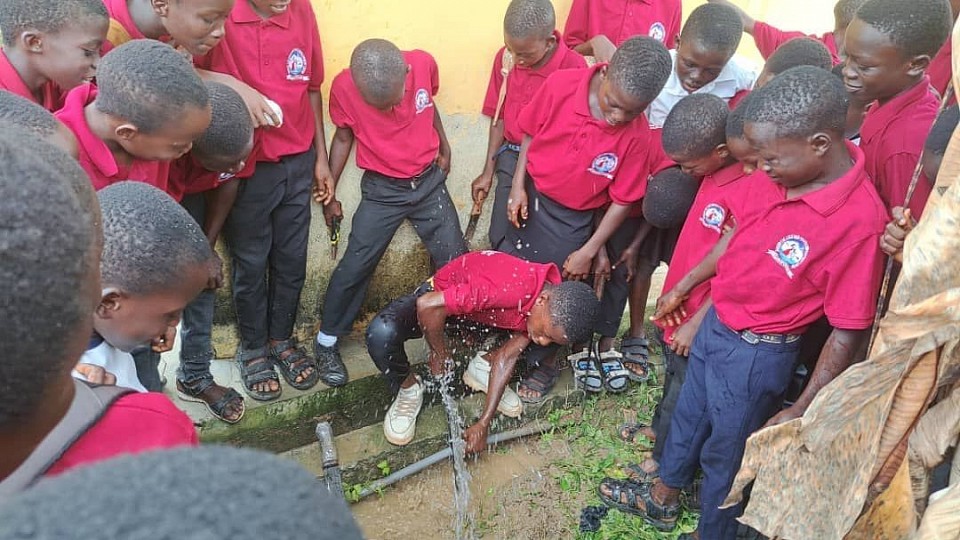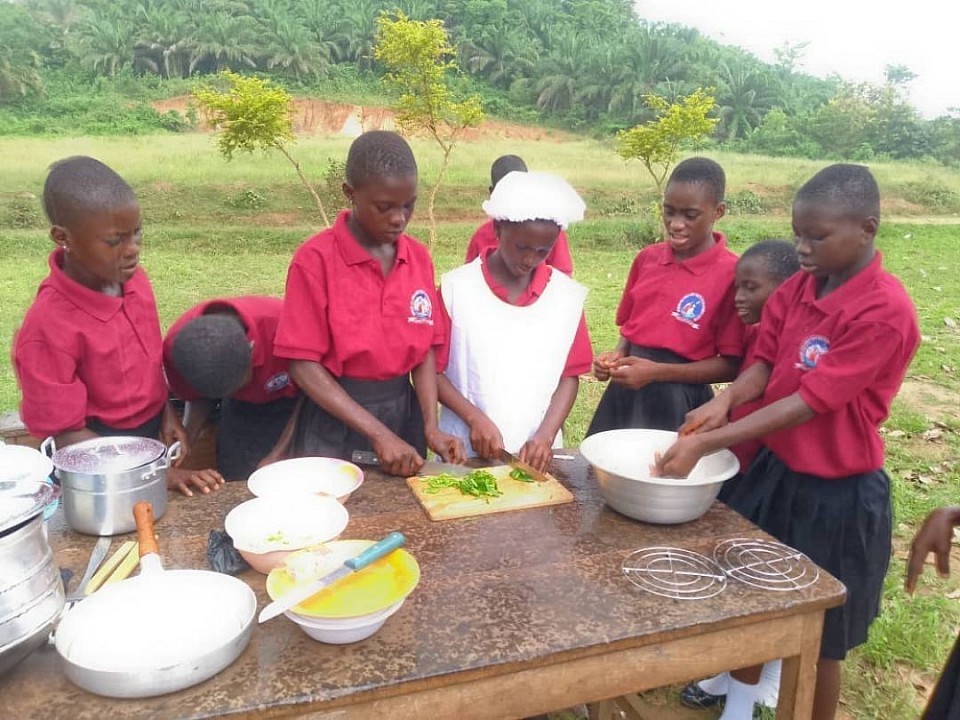Programs and Activities of the centre
Compassion International Curriculum
1. COGNITIVE CURRICULUM - cognitive development refers to how a person perceives, think and gains an understanding of their world through the interaction and influence of genetic and learned behavior.. Cognitive development can be split into formal and non-formals reamls.
Compassion international child's development model seeks to take the child through appropriate age graded activities and exercises to grasp the basic intelligences and apply them to their daily living. The attainment of this outcome is closely monitored by three indicators which serve as road map to the outcome and they are outline as follows
1. Complete at least basic education
2. Cultivates unique vocational interests and intelligence
3. Learns and utilizes at least one income-generating skill...
SOCIO-EMOTIONAL CURRICULUM
Socio-emotional development involves the expression of feelings; the ability to interact with others in a reciprocal way; knowledge of and concern for self, others and creation; making biblically based and responsible decisions; and becoming resilient. Self-worth, physical health, spiritual development, academic learning, citizenship and overall motivation to achieve are all dependent on healthy Socio-emotional development.
The compassion international's Socio-emotional curriculum is prepared to guide the tutor to take the child through activities to demonstrate how and why these competencies are learnt. Roman 12:18 says " if it is possible, as far as it depends on you, live at peace with everyone" One's ability to be assertive and accommodate others is learnt and it is one of the things God requires from us and one of the four relationships God intended for mankind when he created the world.
Compassion international child's development model seeks to take the child through appropriate age graded activities and exercises to grasp the basic intelligences and apply them to their daily living. The attainment of this outcome is closely monitored by three indicators which serve as road map to the outcome and they are outline as follows
1. Exercises self management
2. Applies self and social awareness in making responsible life choices
3. Exhibit effective interpersonal relationship skills
SPIRITUAL CURRICULUM
Spiritual development seeks to expose the individual children to God's word in other to help them have knowledge and understanding of who God is and what He(God) created them to be. The child is given the opportunity to use this understanding and come to personal understanding of the message of salvation and accept Jesus christ as their personal savior.
The spiritual curriculum is designed to serve as a guide for the tutor to take the children through relevant formal and non-formals activities that will help them develop spiritual.
Compassion international child's development model seeks to take the child through appropriate age graded activities and exercises to grasp the basic biblical truth and apply them to their daily living. The ultimate is to achieve the following goals in the life of each child over the course of their participation in the programme: Demonstrating commitment to the lordship of Christ. The attainment of this outcome is closely monitored by three indicators which serve as road map to the outcome and they are outline as follows
1. The child knows and understands the Bible
2. Confesses Jesus as savior
3. Practices spiritual disciplines of prayer, Bible study, worship and service.
PHYSICAL CURRICULUM
The Compassion International's Physical Development Curriculum introduces the child to issues that involves developing characteristics that give a child the full use of his /her physical capacities, such as motor skills and enjoyment of good health. Health is not only the absence of diseases but the presence of appropriate attitudes and practices that secure bodily well-being. Ensuring good or improved health requires recognition and treatment of illnesses and impairment in self and others such as parasites, respiratory infection or congenital abnormality. But, it also requires the formation of attitudes and practices that recognize and promote self care, good nutrition, safe hygiene, exercise and avoidance of high risk behaviors or situations.
The formal and non formal physical development activities of the child Development model seeks to achieve this outcome " choose good health practices and is physically healthy" in the lives of children over the course of their participation in the program.
The attainment of this outcome is closely monitored by three indicators which serve as road map to the outcome and they are outline as follows
1. Demonstrates an appropriate understanding of his/her physical body
2. The young person knows the limit of acceptable behavior as it relates to physical and sexual abuse and is able to take measures to protect himself or herself
3. Takes responsibility for wise life choices about health and sexuality
CO-CURRICULAR ACTIVITIES
- Cadet
- Choreography
- Choir
- Culture
- Drama and Debate
- Bible studies
- Adolescent child
- Sport ( football, volleyball, athletes)
CO-CURRICULAR ACTIVITIES (career opportunities)
- Beads making
- Electricals
- Catering
- Plumbing
